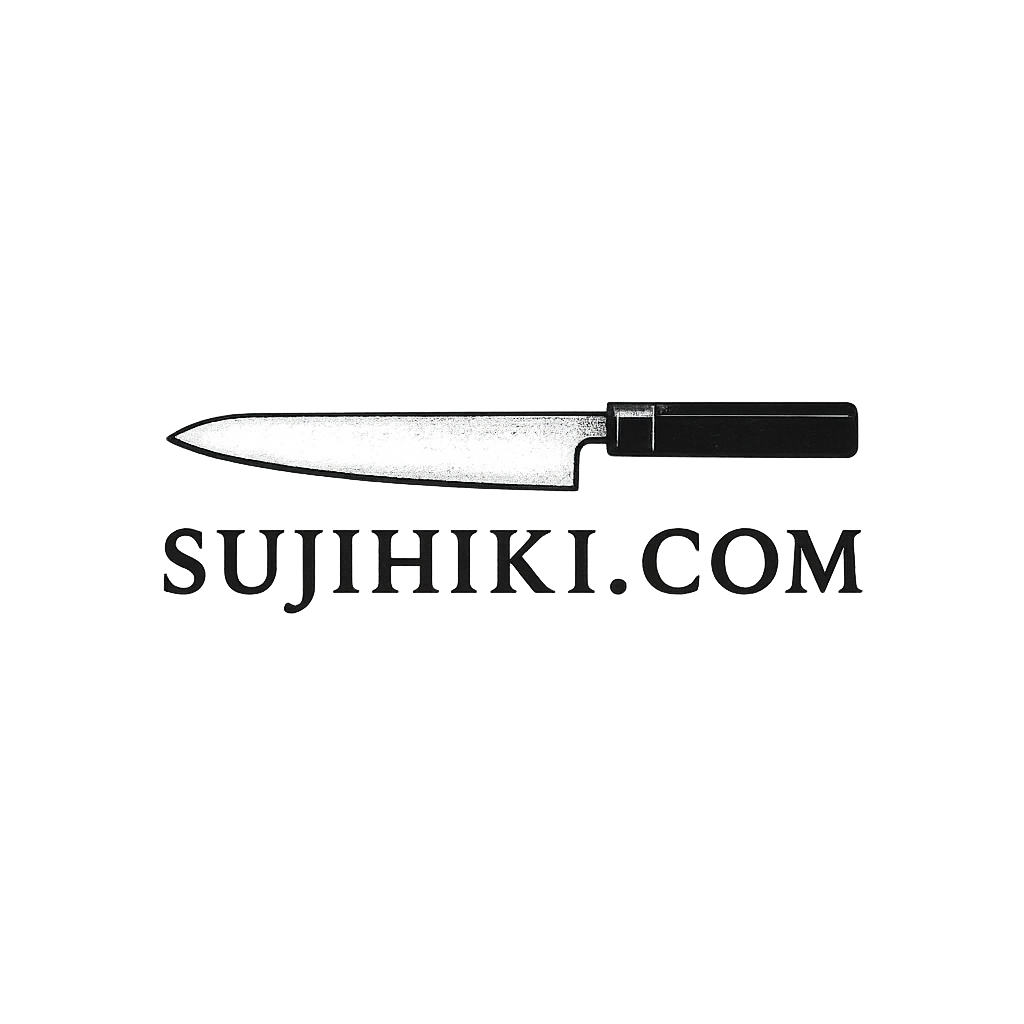
Both yanagiba and sujihiki are designed for precision slicing — but they come from different traditions and suit different kinds of cooks.
Understanding their similarities and differences will help you pick the right one for your needs, whether you’re slicing sashimi or carving a roast.
The yanagiba (柳刃包丁) is a long, thin, single-bevel knife traditionally used in Japanese cuisine, especially for slicing raw fish in one smooth motion. It’s made for pull cuts, and the goal is to preserve the integrity of delicate flesh — think sashimi or sushi prep.
The sujihiki (筋引き包丁) is often called a “Japanese slicer,” but it’s really a double-bevel adaptation of Western carving knives. It’s lighter and thinner than Western slicers, making it more nimble and precise.
| Feature | Yanagiba | Sujihiki |
|---|---|---|
| Bevel Type | Single bevel | Double bevel |
| Primary Use | Raw fish slicing (sashimi) | General slicing (meat, fish) |
| Maintenance | Difficult (single-bevel skills) | Easier to sharpen and hone |
| Versatility | Specialized | Versatile |
| Appearance | Traditional Japanese | Hybrid, modern Japanese-Western |
The yanagiba is a master’s tool for sushi and delicate slicing, while the sujihiki is a flexible, user-friendly slicer for everyday precision.
Both are excellent — it depends on how far you want to go with your knife game.
柳刃包丁と筋引き包丁は、どちらも薄く長いスライサーとして知られていますが、その設計思想や使い方には大きな違いがあります。
目的に合わせて選ぶことで、料理の仕上がりや使いやすさが大きく変わってきます。
柳刃(やなぎば)包丁は、日本料理における刺身専用の包丁として使われてきました。片刃構造で、魚の身を一太刀で引いて切ることに特化した形状です。
筋引き(すじびき)包丁は、両刃の日本式スライサーで、西洋のカービングナイフに由来します。柳刃よりも扱いやすく、肉・魚の薄切りに幅広く使えます。
| 特徴 | 柳刃包丁 | 筋引き包丁 |
|---|---|---|
| 刃の構造 | 片刃 | 両刃 |
| 主な用途 | 刺身のスライス | 肉・魚の薄切り |
| メンテナンス | 難しい(片刃の研ぎが必要) | 比較的簡単 |
| 汎用性 | 専門的 | 汎用的 |
| 印象 | 伝統的な和包丁 | 和洋折衷で現代的 |
柳刃は刺身職人のための道具、筋引きは現代の調理に適した実用的なスライサーです。
どちらも魅力的ですが、自分の料理スタイルに合った一本を選ぶのがポイントです。